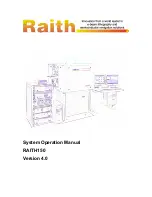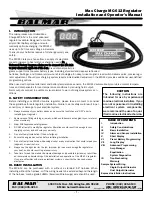
6
•
There are potential health hazards associated with improper
disposal of batteries, electronics, and contaminated (used)
reservoirs and extension sets. Dispose of used batteries,
reservoirs, extension sets, and other used accessories, or a pump
that has reached the end of its useful life, in an environmentally
safe manner, and according to any regulations that may apply.
•
Common portable and mobile consumer electronic devices may
cause interference with the pump. Observe the pump to verify
normal operation. If abnormal performance is observed, it may
be necessary to reorient or relocate the pump away from radio
frequency transmitting devices.
•
Residential/facility wiring must comply with all applicable
electrical codes. Do not bypass power cord connections. Do not
remove a prong from the power cord. Failure to comply may
result in fire or electrical shock.
•
When the pump is powered off, medication is not delivered,
alarms are not sensed or indicated, the display is blank, the
keypad does not respond to presses, and the amber and green
lights are not lit.
•
A rechargeable battery pack that has reached the end of its
useful life must be replaced with either another CADD
®
-Solis
rechargeable battery pack or with 4 AA batteries.
•
Do not use rechargeable NiCd or nickel metal hydride (NiMH)
batteries. Do not use carbon zinc (“heavy duty”) batteries. They
do not provide sufficient power for the pump to operate properly.
•
Always have new batteries available for replacement. If power is
lost, nondelivery of drug occurs.
•
There is no pump alarm to alert users that a battery has not been
properly installed. An improperly installed battery could result in
loss of power and nondelivery of drug.
•
Always check the battery compartment for fluid or debris before
inserting the batteries, and do not allow any fluid or debris to
fall into the battery compartment. Fluid or debris in the battery
Содержание cadd-solis VIP 2120
Страница 43: ...43 ...







































